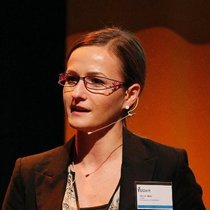metaCCAZE is designed to transition cities into the era of green mobility and turns European strategies and initiatives such as the EU's Green Deal, the Climate-Neutral and Smart Cities Mission and the 2ZERO and CCAM partnerships into concrete innovation actions.
European initiatives and goals
The transport sector is the second largest source of greenhouse gas emissions and is responsible for more than 30% of total energy consumption. The European Green Deal and other EU-wide initiatives aim amongst others to reduce transport-related greenhouse gas emissions by 90% by 2050, put at least 30 million zero-emission cars on European roads, transition almost all motorised vehicles to become emission-free and have 100 major climate-neutral cities by 2030. In the process of achieving these goals, new challenges arise such as inefficient charging of electric vehicles or high energy loads straining the power grid.
From cities to citizens
The metaCCAZE project paves the way for the urban mobility transition by offering solutions to these new challenges. It aims to accelerate the deployment of smart systems that combine electric, automated and connected mobility and infrastructure by developing six transferable and innovative technologies, including amongst others automated charging, AI-based real-time planning for autonomous fleets and low emission traffic management. The technologies are pioneered in:
- Passenger and freight services (public transport, on-demand minibuses, bike and scooter sharing, deliveries) and,
- Related infrastructure (mobility and logistics hubs, traffic management centres, charging infrastructure).
To test their potential in real and diverse urban environments, they will be widely demonstrated in four Trailblazer Cities (Amsterdam, Munich, Limassol, Tampere). Successful technologies and activities are transferred to six Follower Cities (Athens, Krakow, Gonzo, Milan, Miskolc, Paris region). To ensure the technologies meet the needs of citizens and urban mobility stakeholders, a series of collaboration activities will be organized locally in the cities.
“With metaCCAZE, we have the opportunity to shape the realities of all our European cities in the years to come. Sharing the knowledge and learnings from the demonstrations in our metaCCAZE testbeds with other European cities will be crucial to ensure our vision of clean and liveable cities ultimately comes to life.”
Tamara Djukic, metaCCAZE project coordinator and expert in the field of urban mobility transformation and innovation

The project is set to run over the next four years during which the technologies will be deployed and monitored by a project consortium that includes 43 renowned institutions from 12 European countries and covering the diverse perspectives from academia, industry, and the public sector.
AMS Institutes role
In metaCCAZE, AMS Institute leads the setting up, monitoring and evaluation of five living labs in Amsterdam. The living labs aim to safely apply existing technologies/concepts around mobility and logistics at an early stage in a realistic setting. Together with residents, companies, the municipality and research institutes, metaCCAZE tries to test and scale up these innovations. Examples include automated transport by water, adjusted speed limits on electric bikes, a mobility credit trading mechanism, a Digital Twin of Amsterdam and optimizing delivery services.
Partners in the Amsterdam living labs are the City of Amsterdam, TU Delft, Townmaking Institute, Zoev City, Argaleo and Technolution.
